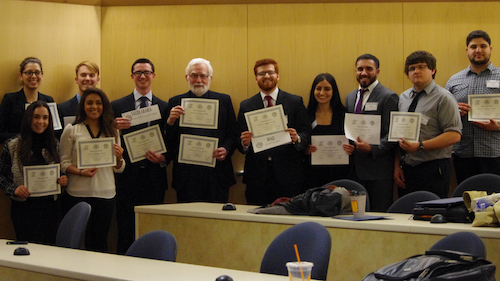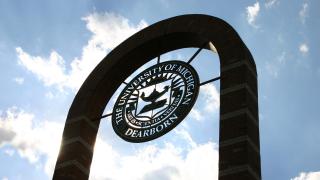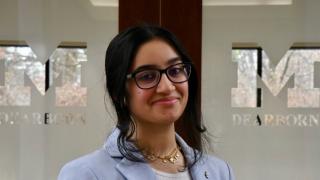Tension. Bombings. Sectarianism.
Senior Ali Najaf is familiar with the dividing lines of the Arab League Coalition’s religious sects and its effects.
And Najaf, who was born in Iraq, was glad that he got the chance to argue his native country’s point of view at the 2016 Model Arab League (MAL) Conference.
“This Coalition is threatening to become a tool for sectarianism in the Middle East,” said Najaf, who was the MAL head delegate for Iraq. “It’s essential that this force work for the Sunni and Shia countries of the Middle East instead of choosing sides.”
The MAL, which is a mock conference with a similar format to the Model United Nations, is a student leadership development program that focuses only on the 22-member states that comprise the League of Arab States.
Bringing up real issues at the event, Najaf said the National Arab Coalition —which was created at the 2015 Arab League Summit as a way to combine military efforts to combat Middle East terrorism—would be Sunni dominated, that could be a threat for the Shia majority country of Iraq. And he wanted to pass a minority clause to help keep that from happening.
“Being born in Iraq and visiting several times in my lifetime, I was quite aware of the issues that plague the Iraqi government,” he said. “That made me passionate and determined to speak to an audience and bring awareness.”
For his passionate argument and dedication to the country he was representing, he won an Outstanding Delegate award.
Najaf, along with nine campus colleagues, recently competed in Grand Rapids for the 2016 MAL competition. The students were divided into two delegations, one representing Iraq and the other representing Saudi Arabia.
Political Science Professor and MAL Adviser Ron Stockton, who only picks countries that he’s traveled to or studied, said he chose Saudi Arabia and Iraq because of the intensity between the countries. In preparation for the competition, the groups learned about issues facing the region and discussed the positions of the two governments.
“These countries are on opposite ends of the political spectrum and each delegation is required to stay in character; they must represent the views and interests of their government, not their own views,” Stockton said. “Our delegations cooperated very closely before they got to the conference, but once there they became rivals. Someone said to me, ‘Your groups don’t really like each other do they?’ I replied, ‘That’s how you know they are doing a good job.’”
Najaf wasn’t the only student to win an award for his performance—all 10 UM-Dearborn students did. Additional students representing campus were Mohammed AlJabery, Sumer Ghazala, Bayan Jaber, Yasmeen Kadouh, Christian Ledford, Sam Parks, Brad Pischea, Magy Shenouda and Muntazar Tajaldeen.
“For only the second time since I have been doing this, starting in 1988, each and every delegate received an award for superior performance,” Stockton said. “I am also pleased to report that both of our delegations won the Outstanding Delegation Award for best delegation. So this is 15 years in a row that one of our delegations has won the top delegation award, but for both to win was a special pleasure.”





